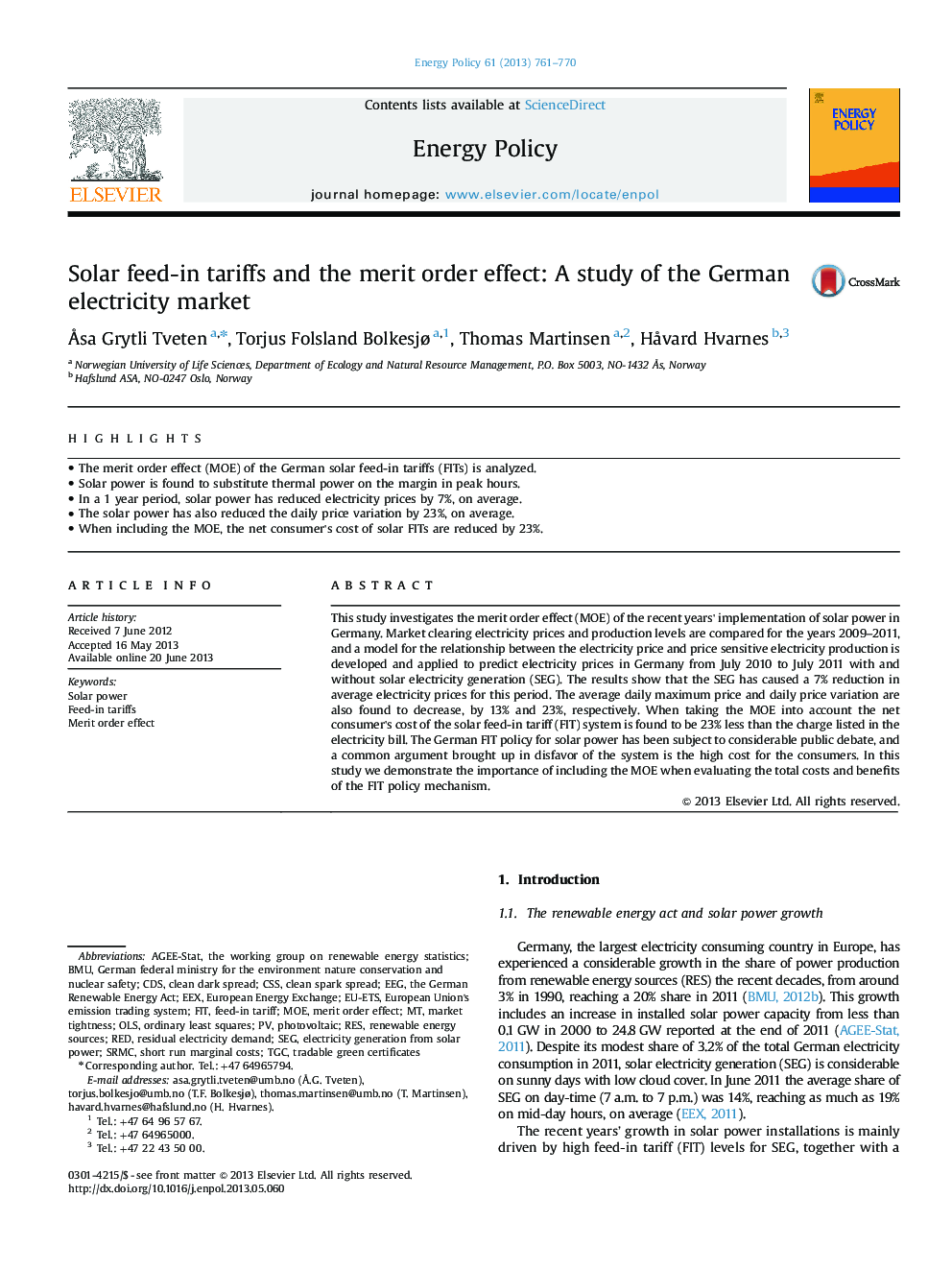| Article ID | Journal | Published Year | Pages | File Type |
|---|---|---|---|---|
| 7404886 | Energy Policy | 2013 | 10 Pages |
Abstract
This study investigates the merit order effect (MOE) of the recent years' implementation of solar power in Germany. Market clearing electricity prices and production levels are compared for the years 2009-2011, and a model for the relationship between the electricity price and price sensitive electricity production is developed and applied to predict electricity prices in Germany from July 2010 to July 2011 with and without solar electricity generation (SEG). The results show that the SEG has caused a 7% reduction in average electricity prices for this period. The average daily maximum price and daily price variation are also found to decrease, by 13% and 23%, respectively. When taking the MOE into account the net consumer's cost of the solar feed-in tariff (FIT) system is found to be 23% less than the charge listed in the electricity bill. The German FIT policy for solar power has been subject to considerable public debate, and a common argument brought up in disfavor of the system is the high cost for the consumers. In this study we demonstrate the importance of including the MOE when evaluating the total costs and benefits of the FIT policy mechanism.
Keywords
Related Topics
Physical Sciences and Engineering
Energy
Energy Engineering and Power Technology
Authors
Ã
sa Grytli Tveten, Torjus Folsland Bolkesjø, Thomas Martinsen, Håvard Hvarnes,
